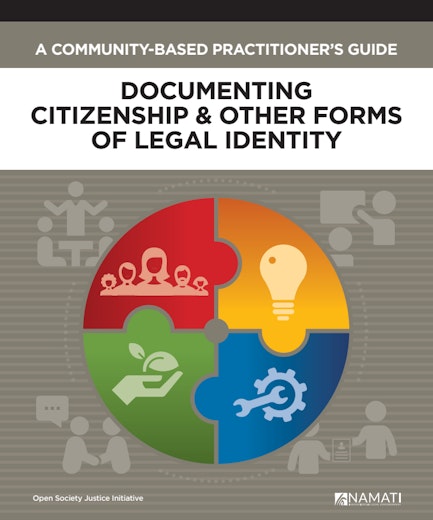Kuric v. Slovenia
Government Erases Citizens from Records
When Yugoslavia broke apart, people in Slovenia were given six months to apply for citizenship. In February 1992 the government erased the names of over 18,000 individuals from the civil register on the basis that they had not applied for citizenship, making these individuals effectively stateless. The Grand Chamber of the European Court of Human Rights found that the severe impact of the erasure violated the private life of those affected, and that there had been unlawful discrimination against them on account of their nationality.
Facts
On June 25, 1991 Slovenia declared independence as a successor state of Yugoslavia. Until that time, Slovenia was one of six republics within the federation of Yugoslavia, and nationals enjoyed "dual citizenship" for internal purposes, meaning that they were citizens both of the federation and of one of the six republics. They had freedom of movement within Yugoslavia and could acquire permanent residence in any of the six republics. According to transitional laws at independence, citizens of other Yugoslav republics who were not citizens of Slovenia could acquire citizenship from the newly independent sovereign state of Slovenia if they met three requirements: (1) they had acquired permanent resident status in Slovenia by December 23, 1990; (2) they were actually residing in Slovenia; and (3) they applied for citizenship within six months after the Citizenship Act entered into force (i.e., from June 25, 1991).
On February 26, 1992, the Slovenian government "erased" from the civil registry the names of at least 18,305 and perhaps as many as 25,671 citizens of the former Yugoslavia who were legally residing in Slovenia, thereby withdrawing their legal resident status and placing them on a register of foreigners illegally residing in Slovenia. Several legal challenges to this action were brought before the Slovene courts. Although the Slovene Constitutional Court declared the erasure illegal, the Slovenian government failed to adopt legislative measures to restore legal residence status to the individuals whose names were erased.
Eleven victims of the erasure filed a complaint before the European Court of Human Rights (ECHR) in 2006 claiming that the erasure and the consequences they are suffering violated various provisions of the European Convention on Human Rights (ECHR).
On July 13, 2010, the Third Section Chamber unanimously held that Slovenia had violated Article 8 of the Convention. In particular, the Chamber concluded that arbitrary denial of citizenship might in certain circumstances raise an issue under Article 8 and that, because the applicants had developed an extensive network of relationships in Slovenia, they had a private and/or family life there at the material time. The protracted refusal to regulate the applicants’ legal status amounted to an unlawful interference with these rights.
On February 21, 2011, at the request of the Slovenian government, the Chamber decision was referred to the Grand Chamber.
Open Society Justice Initiative Involvement
The Open Society Justice Initiative filed written comments as a third party in the case.
Arguments
Arbitrary Deprivation of Citizenship. The way in which the Slovenian Government arbitrarily deprived the applicants of their citizenship breached the right to private life protected in Article 8 ECHR. In particular, the process by which individuals were left at risk of being arbitrarily denied citizenship and becoming stateless had such a profound impact upon the victims as to interfere with Article 8. The European Convention on Nationality places a distinct emphasis on the importance of habitual residence in nationality rules, the notion of a “genuine and effective link” and the State’s obligation to facilitate the acquisition of nationality by stateless persons habitually resident on the territory, and in particular children.
Discrimination. The applicants argued that they had been treated even less favourably than aliens from outside former Yugoslavia who had lived in Slovenia since before independence and whose permanent residence permits remained valid. Justice Initiative added that because the Slovenian population was ethnically homogeneous as compared to other former SFRY republics, the “erasure” disproportionately affected non-ethnic Slovenes, ex-SFRY minorities, and Roma, thereby also discriminating among residents on ethnic grounds, many of whom did not even have another nationality, contrary to Article 13 ECHR (non-discrimination).
On June 26, 2012, the Grand Chamber of the European Court of Human Rights delivered its judgment, agreeing with the Chamber that there had been a violation of Article 8 (private life), but also finding that there had been a violation of Article 14 (non-discrimination).
The Grand Chamber assessed the lawfulness of the erasure in relation to the applicants right to respect for private life (Article 8). The Court found that the domestic legal system had failed to adequately regulate the consequences of the erasure and the residence status of those who had been subjected to it. This meant that the erasure had not been carried out "in accordance with the law."
The Grand Chamber considered that the erasure had had a serious impact upon the private life of the applicants, including through the destruction of identity documents, loss of job opportunities, loss of health insurance, the impossibility of renewing identity documents or driving licences, and difficulties in regulating pension rights. It noted that the legal vacuum in the independence legislation deprived the applicants of their legal status, leaving many stateless and making it impossible to maintain meaningful family and community ties.The Grand Chamber agreed with the Chamber that the situation was an unjustified interference with private life.
The Grand Chamber also found a violation of the prohibition of discrimination (Article 14). The Court considered that there had been a difference in treatment between two groups—“real” aliens and citizens of former SFRY Republics other than Slovenia—which were in a similar situation in respect of residence-related matters. The Grand Chamber did not accept the government claim that the erasure was necessary in order to establish those entitled to vote in the parliamentary elections of 1992. Such a justification did not require differential treatment in granting foreigners the possibility of residing in Slovenia, as a residence permit did not confer the right to vote on the holder. The Grand Chamber asserted that that the differential treatment complained of was based on the national origin of the persons concerned—as former SFRY citizens were treated differently from other foreigners—and that it did not pursue a legitimate aim and therefore lacked an objective and reasonable justification. It concluded that Slovenia had therefore subjected the applicants to discrimination on grounds of nationality.
The Justice Initiative is now assisting the applicants in their efforts to ensure the full implementation of the Grand Chamber judgment before the Committee of Ministers of the Council of Europe.
Grand Chamber issues its final judgment.
Grand Chamber holds hearing on the case.
The Justice Initiative files additional and consolidated Written Comments to the Grand Chamber.
Chamber judgment referred to the Grand Chamber.
Chamber Judgment of the European Court of Human Rights Chamber.
Third party intervention filed by the Justice Initiative to the European Court of Human Rights.
Applicants file case to the European Court of Human Rights.
Constitutional Court of Slovenia declares the laws to be partially unconstitutional.
Government "erases" at least 18,000 non-Slovene citizens from its registry.
Related Cases
Nubian Community in Kenya v. Kenya
Africa's human rights tribunal found that members of Kenya's Nubian community face arbitrary procedures that restrict their access to vital national identity documents.
Bueno v. Dominican Republic
This case is about statelessness in the Dominican Republic. It focuses on a Dominican man who was denied identity documents because he was of Haitian descent.
Yean and Bosico v. Dominican Republic
This is a case brought by two Dominican girls of Haitian descent who were denied Dominican nationality in spite of the fact that both were born in the country, which should legally entitle them to citizenship.
Related Work
A Community-Based Practitioner’s Guide: Documenting Citizenship and Other Forms of Legal Identity
This guide provides instructions on how to establish a community-based paralegal program to help people document citizenship and other forms of legal identity.

Saving Newborn Rohingya from a Legal Abyss
The government of Bangladesh has already promised to uphold its obligation to register newborn Rohingya refugees. For the sake of international law—and the children’s future—it must stop dragging its feet.

Case Watch: Battling Statelessness in Slovenia
Twenty years after the break-up of the Yugoslav federation, the European Court of Human Rights is focusing on the plight of 25,000 people who were erased from Slovenia's registry of residents after the republic declared its independence.